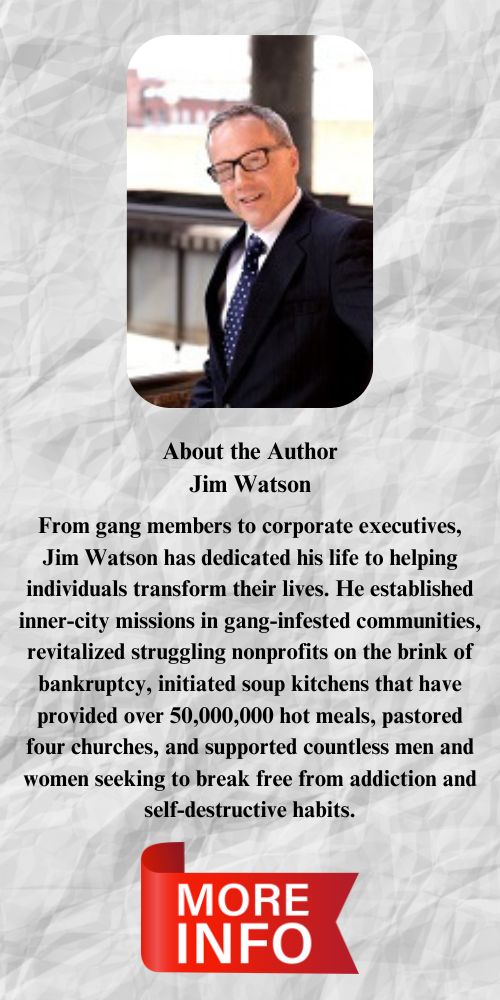
Service to Others

Service to Others
“He riseth from supper, and laid aside his garments; and took a towel and girded himself. After that he poureth water into a bason, and began to wash the disciples’ feet, and to wipe them with the towel wherewith he was girded. John 13:4-5 (KJV)
“So after he had washed their feet, and had taken his garments, and was set down again, he said uto them, ‘Know ye what I have done to you? Ye call me Master and Lord: and ye say well, for so I am. If then, your Lord and Master, have washed your feet; ye also ought to wash one another’s feet. For I have given you an example, that ye should do as I have done to you. Verily, verily, I say unto you, The servant is not greater than his lord; neither he that is sent greater than he that sent him.”
John 13:12-17 (KJV)
It was my first soup kitchen in Bridgeport, Connecticut. I did most of the cooking while the volunteers from various churches served the food and cleaned up after dinner. While they were cleaning, I spent time with the men, women, and children who came looking for a decent meal. The volunteers were fantastic. Not a single spot of dirt escaped their cleansing touch. They cleaned everything–except the bathrooms.
It was the height of the AIDS epidemic. Stories of young people cut down in their prime by this deadly disease inundated the national and local news. It was also a time of ignorance and misinformation concerning the virus. Everyone was afraid of being infected. People shunned men and women with AIDS, fearful the same fate would befall them.
The volunteers were frightened of what might happen to them if they scrubbed the bathrooms. Liquid fecal matter covered the toilets, both inside and out, running down the sides. The odor was almost unbearable. Mindful that many of the guests at our soup kitchen were IV drug users, the scene in the bathrooms created worst-case scenarios in the minds of the volunteers. For them, cleaning the toilets could mean risking their lives or perhaps even threatening their families.
While I was a student, an older minister shared with me a story about his encounter with a toilet that overflowed in the basement of the church he was pastoring. The pastor was the only one in the building; everyone else had left for the day. The overflow required immediate action to prevent damage to the tile floor, so he cleaned it up. The minister concluded his story by commenting, “Imagine that: me, a man with a Ph.D., cleaning a toilet. While studying for my seminary degree, who would have thought…?” He drifted off, driving home the point of his story. I am sure he was trying to prepare me for the drudgery and mundane tasks often associated with the ministry.
His comments got me thinking. Maybe, at least for that moment, the overflowing toilet was his ministry. Perhaps because the heroic anecdotes of ministers and missionaries are so inspiring, we forget about the essence of who Jesus was as a person. Sometimes, their stories, factual as they may be, cause us to believe that real ministry is about acts of courage, excitement, adventure, huge crowds, crowded altars, and fame.
We love the preaching of Jesus. We admire his nerve as he faced down the professional religionists and the political forces that conspired against him. His healings and miracles, the manifestations of his power, the signs and wonders cause us to forsake the ordinary and focus on the spectacular, forgetting the many years of obscurity that prepared him for a few brief years of public ministry.
Minus the cross, our dream is to be just like Jesus, high above the crowds, and recognized as unique and gifted. We live in a day when fame is the ultimate measure of a person. Christians are not immune to this pollution of the soul. We want to do something great for God so the common folk will recognize our special anointing, see us as numbered among the great ones, and hang on to every word of wisdom that flows from our mouths.
For many of us, life is all about people meeting our desires by serving and waiting on us. Relationships that do not satisfy our needs are cast aside as impediments to our happiness, as destructive forces that stifle our growth and prevent us from achieving our full potential. We judge new contacts through personal gain, benefits, and advancement. Our fame, resources, accomplishments, and influence define our greatness.
Do not be fooled. This definition of greatness will warp your soul, extinguish any humility you may possess, and rip the fabric of connectedness that unites you with others. When being served by others becomes your highest priority, you condemn yourself to live an inconsequential life, played out before an audience of one–yourself. Your life will never rise beyond your limited skills and abilities.
For Jesus, serving others was not just a specialized ministry but a lifestyle. The basin and towel from John 13 were not random activities stemming from a balanced lifestyle of public ministry and personal time. It was life itself! Jesus, the King of the universe, told his disciples in Matthew 20:28 that his focus in life was serving others. He did not enter our world so that others might help him and cater to his every need. If serving is central to the life of Jesus, maybe that explains the barrenness of fame and why prosperity in and of itself never satisfies.
Perhaps the toilet, shunned and neglected by the high and mighty, the fearful and timid, is the heroic place–the holy mountaintop, the altar of our God. Maybe you can only find the meaning of your life in the unexciting, dull tasks of service. It could be this is what Jesus meant when he told us that only by losing our lives could we find them.
While living in San Francisco, I was invited to speak at Golden Gate Seminary to a group of first-year students about service opportunities at my mission. These students were the best-of-the-best, talented, and extremely bright, with promising futures ahead. They were eager to use their talents to advance the Kingdom of God.
Before I spoke, leaders from other ministries presented opportunities to serve at their organizations to the group. Wow! The opportunities they offered were impressive, an acknowledgment of each student’s unique giftedness. “If you volunteer at my ministry,” they said, “you will have an opportunity to perfect the gifts God has given you. You can teach, preach, mentor, and counsel.” The students ate it up. Who could blame them?
Then it was my turn to speak. “If you wish to serve at our mission, you must begin by cleaning toilets. After you have proven yourself faithful at cleaning toilets, we’ll look for other opportunities for you.” Only one person volunteered to serve at our mission from that group.
I know you must think I am obsessed with toilets. Frankly, I hate cleaning bathrooms. I can think of far more productive things to do. Despite that, I believe cleaning toilets is the modern version of washing feet. At first, it is a humbling experience, an apparent waste of my giftedness. Then again, maybe a humbling experience is what is needed to enhance my gifts. Perhaps washing toilets is closer to the heart of Jesus than preaching a great sermon.
Sometimes, we treat delegating unskilled labor to others as good leadership. After all, as leaders, entrusting lesser tasks to subordinates helps us focus on the things that are more in harmony with our abilities. Did not Paul teach us that we all have different gifts?
Remember what Jesus said after He washed the feet of the disciples:
“So after he had washed their feet, and had taken his garments, and was set down again, he said uto them, ‘Know ye what I have done to you? Ye call me Master and Lord: and ye say well, for so I am. If then, your Lord and Master, have washed your feet; ye also ought to wash one another’s feet. For I have given you an example, that ye should do as I have done to you. Verily, verily, I say unto you, The servant is not greater than his lord;
John 13:14-16 (KJV)
Are you more talented and gifted than Jesus? Was it a waste of his talent to wash their feet? When Jesus washed their feet, did that mean he had delegation issues? Perhaps Jesus was not as competent a leader as you. When I read Acts 6, I sometimes wonder if the apostles forgot the lesson of Jesus stripped of his outer clothing, wrapped in a towel, on his knees, washing the sand and caked-on dirt off their feet.
Many men and women only want to serve if they receive an immediate personal blessing for their efforts. Without that blessing, they have little tolerance or staying power to continue volunteering at a ministry, and eventually, they move on to something more exciting and fulfilling.
What if the most mundane and lowly task is God’s method of transforming your life? What if washing a toilet has the power to make you more like Jesus? Maybe it is a necessary step for becoming more powerful and compelling when you serve in a more noticeable ministry task.
SERVICE CAN CHANGE YOUR LIFE
I understand that many of your problems are severe, consuming vast amounts of time, thoughts, and conversations. Your difficulties can become an obsession, destroy all your focus, and drive everyone around you crazy. Eventually, people tire of being around you, listening to your daily recital of wrongs committed against you, and repeatedly hearing the same complaints. Left unchecked, you can become somewhat neurotic, unable to move on and grow as a person.
If you have problems in your life–and who does not–that does not mean you shouldn’t try to find a solution that will fix the problem. You should do everything you can, including bringing the matter to God to find a solution that will make things right. Unfortunately, not every situation is fixable. Some troubles are irreversible, causing much pain and hurt. As difficult as it may be, the solution is not dropping out of life and curling up in the fetal position. You must go on with your life.
Service to others helps put your life in perspective. Even though your problems may be gigantic, helping others who suffer and need advice and support can get you out of your painful rut and prevent you from obsessing over yourself. When you are involved in something bigger than yourself, your perception of life’s meaning for you grows and matures. You begin to trade self-centeredness and focus on the wrongs committed against you for a life of service. In the loss of your destructive obsessions, you will finally discover joy.
You will never change or become more like Christ if your life’s total concentration is on yourself. Even in your devotional life, the focus is on God and his purpose and vision for you. Purpose and vision always end in service. Service then comes full circle because you are serving God when you serve humanity.
In Matthew 25:34-40 (KJV), we read:
“Then shall the King say unto them on his right hand, Come, ye blessed of my Father, inherit the kingdom prepared for you from the foundation of the world: For I was an hungred, and ye gave me meat: I was thirsty, and ye gave me drink: I was a stranger, and ye took me in: Naked, and ye clothed me: I was sick, and ye visited me: I was in prison, and ye came unto me. Then shall the righteous answer him, saying, Lord, when saw we thee an hungred, and fed thee? or thirsty, and gave thee drink? When saw we thee a stranger, and took thee in? or naked, and clothed thee? Or when saw we thee sick, or in prison, and came unto thee? And the King shall answer and say unto them, Verily I say unto you, Inasmuch as ye have done it unto one of the least of these my brethren, ye have done it unto me.”
You serve the King of Glory by helping the needy, the hurting, and the broken. He so intimately identifies with the brokenhearted that he declares that your service to them is the same as service to him.
Whatever your giftedness, it must always include service to the poor—a theme echoed throughout the Old and New Testaments. According to the Bible, nations will give an account of themselves concerning their service to the poor. In a sense, service is another way of connecting with God, and that connection changes you. You may not be able to pray all day, but you can find multiple ways to connect your life with God.
The more influential you think you are, the more you need to wash toilets. Being in the limelight can become the means to your destruction. Maybe that is why one of the last lessons taught by Jesus to his disciples before he went to the cross was the example of the basin and the towel. On the day of Pentecost, they became instant celebrities.
Be on guard when someone tells you what a great person you have become. Do not listen to them; look to Jesus. Start serving God today. In your service, you will find the meaning of your life, and it will change you.




